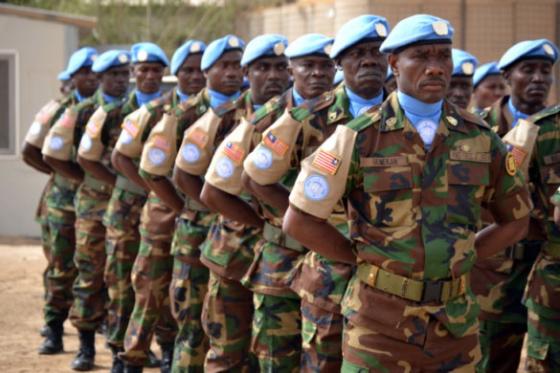Liberia: Liberia Likely to Contribute Soldiers for Niger's Intervention

…. This comes after Abdel-Fatau Musah, the ECOWAS Commissioner, revealed that all bloc member states, with the exception of those under military rule and Cape Verde, "are ready to participate in the standby force."
The administration of President George Weah appears ready to contribute troops for the ECOWAS Standby Force, which is expected to intervene militarily in Niger to restore President Mohamed Bazoum's government, which was overthrown in a coup last month.
The Weah government, which has strongly supported ECOWAS efforts to overturn Bazoum's removal, plans to join its neighboring countries, Ivory Coast and Sierra Leone, in contributing troops to the standby force.
Abdel-Fatau Musah, the ECOWAS Commissioner, revealed yesterday that all bloc member states, with the exception of those under military rule and Cape Verde, "are ready to participate in the standby force."
Musah's revelation comes as officials from the Liberian army participate in an ongoing ECOWAS Defense Chiefs meeting in Accra to plan a strategy for the bloc's military intervention.
The meeting to discuss Niger's crisis comes after a deadline passed on August 6 for mutinous soldiers to release and reinstate Bazoum or face military intervention. Bazoum remains under house arrest with his wife and son in the capital, Niamey.
ECOWAS has been deliberating on the use of force, which it describes as a "last resort," for weeks due to several mediation teams sent to Niamey and a lack of consensus within its ranks.
"Nigeria's Chief of Defense Staff, General Christopher Gwabin Musa, said at the start of the two-day meeting in Accra, which ends today, "Democracy is what we stand for and what we encourage. The focus of our gathering is not simply to react to events, but to proactively chart a course that results in peace and promotes stability."
Meanwhile, Burkina Faso and Mali, which have experienced multiple coups since 2020, warned that any military intervention in Niger would be declared an act of war, revealing a fracture in the region between its coastal countries and those in the volatile Sahel.
Guinea, also under military rule and condemning any external aggression, has refrained from making any other comments.
The top security body of the African Union met on Monday to consider whether it would support military intervention but has yet to make its decision public.
The AU's Peace and Security Council could overrule a military intervention if it perceives that wider stability on the continent is threatened. If it rejects the use of force, there are few grounds under which ECOWAS could claim legal justification.
An ECOWAS military intervention in Niger primarily safeguards the stability of the bloc and the Protocol on Democracy and Good Governance, which emphasizes the importance of peaceful power transfer.
The Protocol, adopted by ECOWAS in 2001, represents the bloc's commitment to democratic principles and explicitly recognizes ECOWAS's right to intervene in member states where democracy is under threat.
Article 1 of the Protocol boldly states that ECOWAS has "Zero tolerance for power obtained or maintained by unconstitutional means and strict adherence to democratic principles."
International law also supports ECOWAS's right to intervene militarily in the face of security threats. Chapter VIII of the United Nations Charter explicitly allows regional organizations to take collective action to address regional conflicts, as history in the region has shown that political crises rarely stay contained within national borders.
Additional information from AL JAZEERA AND NEWS AGENCIES.

